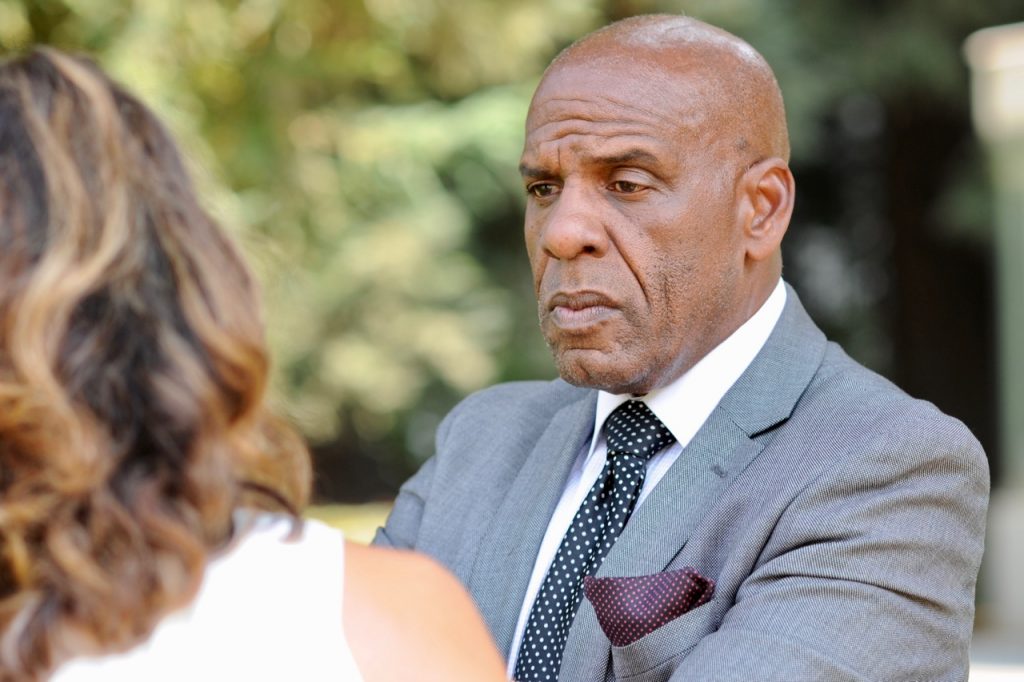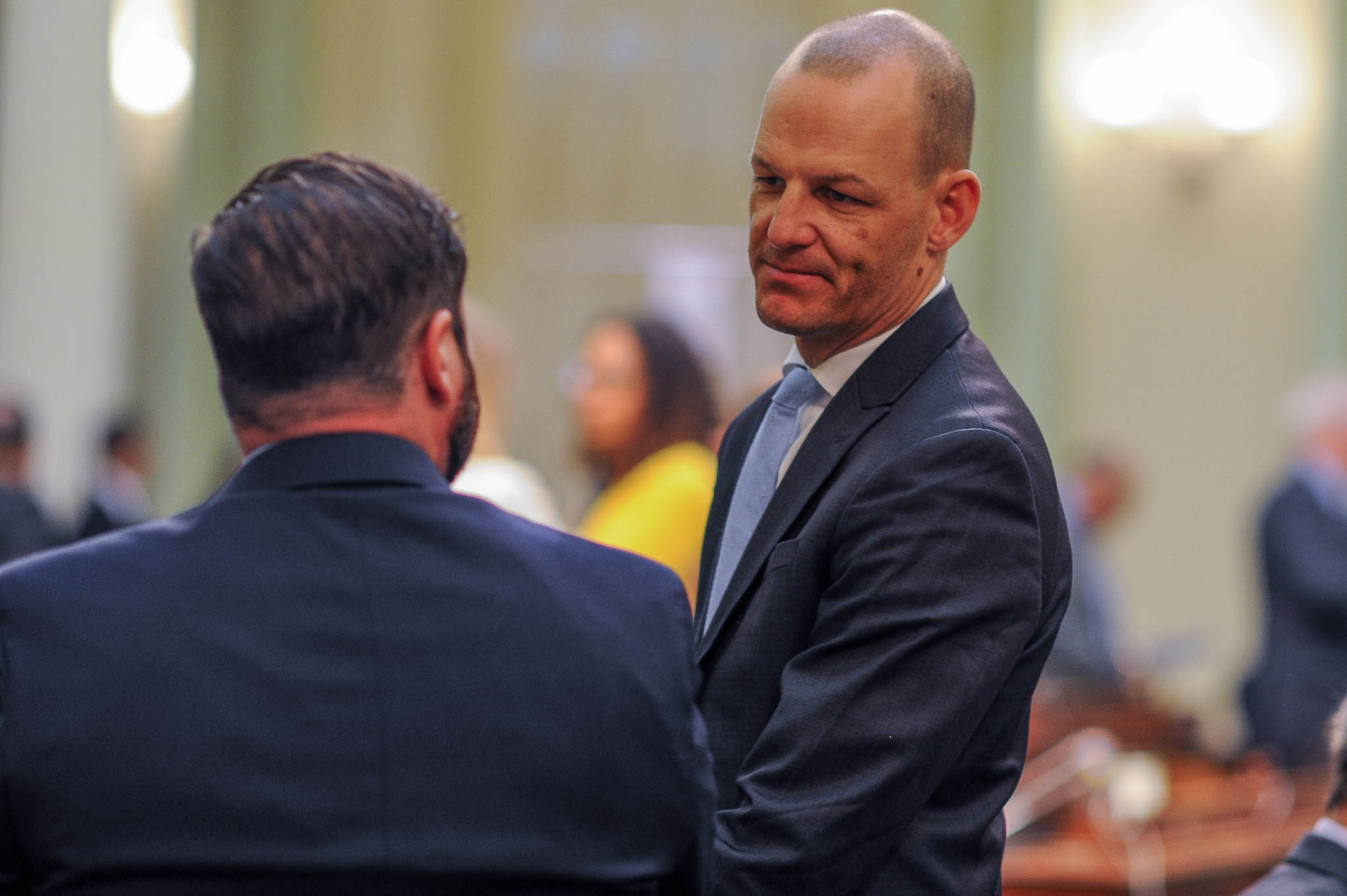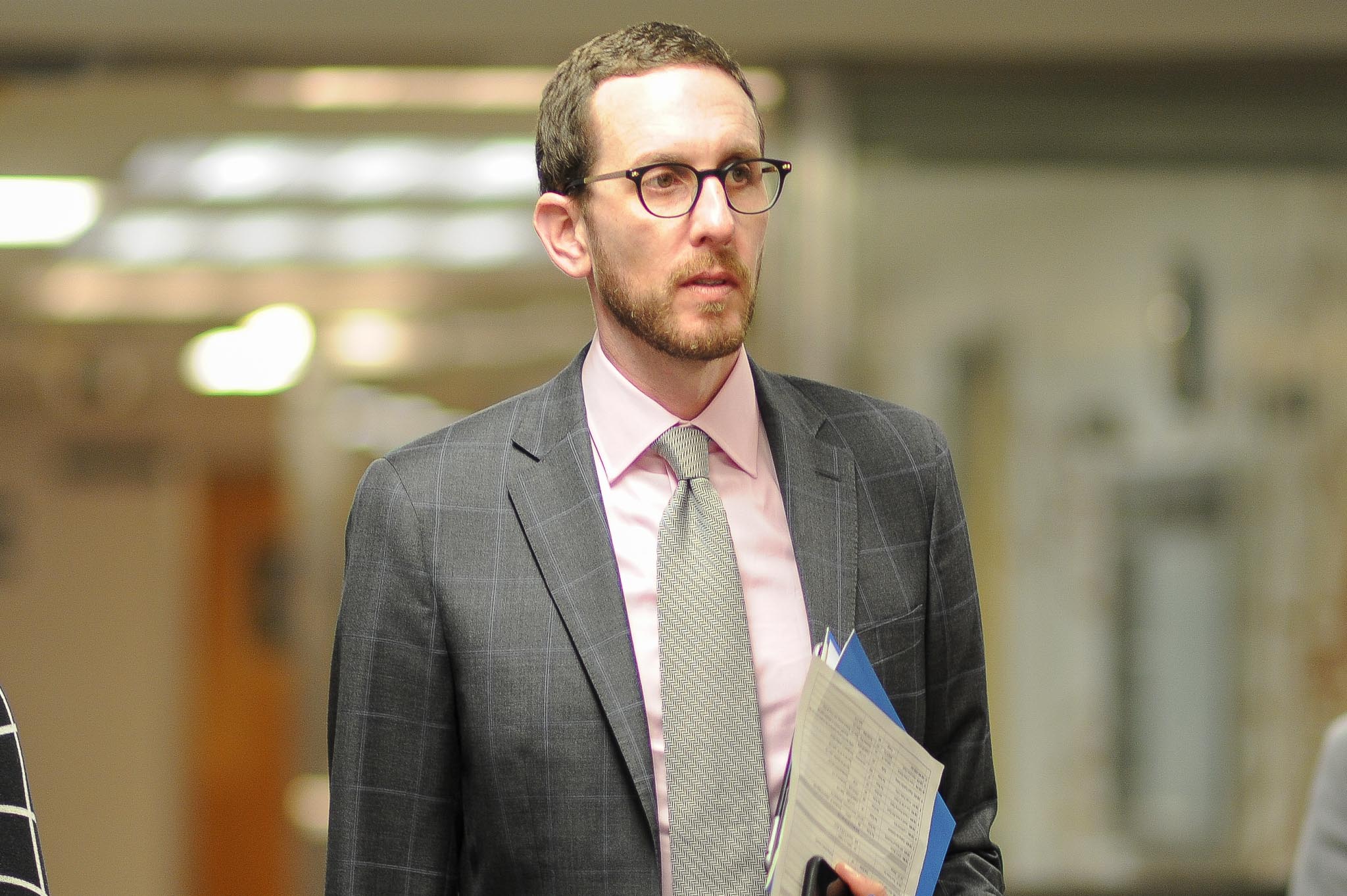
Sen. Maria Elena Durazo. (Photo: Kevin Sanders for California Globe)
Bill To Seal Felony Convictions Of Most Ex-Felons After 4 Years Passes Senate
If passed, SB 731 would come into effect in July 2023
By Evan Symon, August 19, 2022 2:30 am
A bill to create a new way to seal felony convictions and arrest records of formerly incarcerated Californians was passed by the Senate on Thursday.
Senate Bill 731, jointly authored by Senators Maria Elena Durazo (D-Los Angeles) and Steven Bradford (D-Los Angeles), would make felony conviction and arrest records sealable for any defendant, but only after certain circumstances. Under the bill, those who have been convicted of felonies, as long as those convictions don’t require registration as a sex offender, would have records more than five years old sealed as long as no other crimes have been committed during that time. In addition to the record being sealed, those now-sealed crimes could not be used to deny a credential. If passed, SB 731 would come into effect in July 2023.

In addition, record sealing would only occur after the defendant appears to have completed all terms of incarceration, probation, mandatory supervision, post-release community supervision, and parole, and a period of 4 years has elapsed during which the defendant was not convicted of a new felony offense, except as specified. The bill would specify that conviction record relief does not release the defendant from the terms and conditions of unexpired criminal protective orders.
This bill would state that conviction record relief does not affect the authority to receive, or take adverse action based on, criminal history information for purposes of teacher credentialing or employment in public education, as specified. The bill would prohibit disclosure of information relating to a conviction for possession of specified controlled substances when the conviction is more than 5 years old and when relief has been granted under these provisions.
This bill would require the department to also provide that information to school districts, county offices of education, charter schools, private schools, state special schools for the blind and deaf, or any other entity required to have a background check because of a contract with any of those entities. The bill would prohibit the department from disseminating information for a conviction for possession of specified controlled substances if that conviction is more than 5 years old and relief has been granted.
Since being introduced in February 2021, the bill has gone through eight amendments, numerous Assembly and Senate votes, and over a year of political wrangling. New amendments have specifically added more caveats towards a sealing happening, with some, such as sex offenders, now no longer being covered.
Senators Durazo and Bradford wrote the bill due to older criminal convictions and arrest records being a significant barrier for many types of employment in the state. Both Senators also cited a 2018 Californians for Safety and Justice and UNITE-LA report that found that 2.5 million workers in California were being hindered by the felony record barrier every year, estimating that California lost $20 billion in gross domestic product output each year due to the felony record barrier against full employment. With 8 million Californians with arrest records, roughly one in five residents, the number affected could be even greater.
Opposition against, support for SB 731
“Our conviction and arrest records system forces the people who go through it – our mothers and fathers, our brothers and sisters – to face obstacles for the rest of their lives, in every aspect of their lives,” said Senator Durazo last year. “The completion of a prison sentence should pave the way for a complete return to participate fully in society. But for millions of Californians, their conviction history turns into a lifelong sentence of limited access to employment, housing, education, and the ability to live a full, normal life and provide for their families.”
While proponents strive to remove the conviction barrier due to it depriving them of many things despite many no longer committing any crimes, opponents have noted that the bill would put many communities at risk, as well as having employers and others still being able to see prior felonies through other means, likely affecting their reflection on them.
“By expanding the relief of penalties for all felonies, we are placing our communities at risk,” noted the Peace Officers Research Association of California. “By allowing violent criminals back on the street, with their record dismissed, they will have less deterrent to commit another crime.”
Tiffany Lewis, a San Francisco-based resume and cover letter advisor specializing in tech employees, added, “Many employers conduct more personal background checks on people. This includes things as simple as Google or backdated background checks. You can bet that if they convicted a notable felony, they’ll find it. You can erase arrest records, but you can’t exactly remove archived news stories. You can’t get rid of uploaded court records. There’s a lot of ways to find out. Social media is huge too. Many times relatives or friends mention their name as being in prison during a birthday or Christmas or something.”
“Whoever wrote this bill has not heard of the internet or Google it would seem. The bill shouldn’t be a law for many reasons, but for those worried it will pass, there is still a lot working against it.”
Prior to passing the Senate on Thursday, the bill passed the Assembly in late June 46-22 with opposition from Republicans and some Democrats.
SB 731 is to now go to the desk of Governor Gavin Newsom, who is expected to sign the bill into law.
- Bill to Require Law Enforcement Disclosure if AI Was Used To Help Write Reports - August 7, 2025
- Gov. Newsom Files FOIA Request To ‘Expose True Cost’ Of L.A. Federal Troop Deployment for Anti-ICE Riots - August 6, 2025
- California Redistricting: How Newsom’s Plan Will Demolish Hard Fought GOP Gains - August 6, 2025





Even though, as was pointed out in the article, an internet search can usually uncover a person’s criminal history, what is truly disturbing is that this mega-majority-Dem legislature (and good-for-nothing governor) are bound and determined in every possible way to NOT protect Californians, the exact opposite of what they are supposed to be doing. Probably because they think and act like criminals themselves. Disgusting
You know, Gov Gruesome, with his idiotic presidential ambitions, had better think twice about signing some of this outrageous stuff if he wants to get anywhere. Being so nakedly pro-criminal, anarchy, and chaos is not exactly a good look, and especially for the rest of the country not used to his “let-’em-all-out-to-prey-on-innocent-citizens” antics.
Haven’t these state legislators learned anything over the past several months? They seem to be completely removed from real life.
MONTHS???
TRY DECADES!!!
They ARE completely removed from real life – most are “community organizers” or FAILED School Board members who have grifted their quid-pro-quos into political office and the REALLY corrupt ones make laws that benefit the Unions that they jump ship to (Lorena Gonzalez)….
California is COMPLETELY EFFED UP, politically…. C O R R U P T to the core!!!!
I’m an ex felon and have been out of trouble for over 10 years. I’m trying to get a job with the only experience working in elderly homes. I’m trying to provide for my family and having a problem passing a back ground check. I’m a good person that made a bad mistake over ten years ago. People deserve a second chance. People that are good people deserve to work like anyone else. I would never hurt a soul and love helping people. i have been punished enough. I have been degraded and disrespected for something that happen so long ago. I have busted my ass to change my life around and putting myself through school as a psychiatrist in drug addicts. I deserve to have that right to work like the next person. So i feel with limitations on this bill it could be good for good people who deserves it.
This bill permanently and electronically seals access to criminal records in California to only the last four years and bans the public from checking the criminal histories of prospective employees, and candidates for either personal or business relationships including mergers and acquisitions, beyond a four-year timeframe.
SB 731 prohibits banks, credit unions, mortgage brokers, broker-dealers, insurance companies, and app-based companies from meeting mandated background checks. In some cases, the look-back period must be at least ten years.
SB 731 is arbitrary and inconsistent. It prohibits the use of this information in many situations of vital importance to the protection of other members of our society including domestic violence, theft or fraud.
This bill does not strike an appropriate balance between the ability of convicted individuals to build a new life and the protection of the public.
While proponents strive to remove the conviction barrier due to it depriving them of many things despite many no longer committing any crimes, opponents have noted that the bill would put many communities at risk, as well as having employers and others still being able to see prior felonies through other means, likely affecting their reflection on them.
I was convicted 13 years ago i was on probation did my probation but I did petty theft and I cannot work in a convalescent home due to my conviction does this law apply to me I did wrong and this conviction has been hunting down